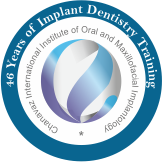Magnesium is an important factor in relaxing muscles and supporting blood flow. While taking vitamins can help manage symptoms caused by chronic alcohol use, they are most effective alongside detoxification and rehabilitation. Keep in mind that taking supplements while continuing to consume alcohol can overwork your liver and lead to other medical complications. Magnesium supplements can improve cognitive deficits caused by chronic alcohol abuse by improving cerebral blood flow10. Vitamin C also plays a significant role in collagen production, which is depleted after heavy alcohol consumption. Restoring collagen levels can improve the skin, blood vessels, and connective tissues.
The right combination of vitamins and supplements can not only help you feel physically healthier, it can also help you overcome alcohol cravings and common long-term withdrawal symptoms like anxiety and depression. Overall, the effectiveness of IV multivitamin or micronutrient supplementation in post-surgical patients or in patients with malabsorption issues, burns, trauma, intoxication, or serious infectious diseases is unclear. Therefore, decision-making and policy changes around the use of IV multivitamin supplementation may need to consider combination therapies as a potential practice of relevance.
Exclusive Lifestyle, Nutrition & Health Advice
If you aren’t short on these nutrients, though, taking a multivitamin probably does little or nothing to prevent or treat infections, studies show. While vitamins alone cannot treat alcohol withdrawal syndrome, B vitamins, especially thiamine (B1), may be administered as part of medical treatment to address nutritional deficiencies. First, you’ll need a full nutritional workup from your family doctor. They’ll ask about your health history, do a physical exam, and run some blood tests.
- This could explain why vitamin D supplementation has been observed to have lower efficacy in this group, the researchers conducting this trial have hypothesized.
- There’s overwhelming evidence that a diet rich in plant-based foods — fruits, vegetables, nuts, legumes, seeds and whole grains — is a rock-solid foundation for optimal health.
- In addition, the pathogenesis of liver damage, especially cirrhosis, further exacerbates nutritional disorders.
- One systematic review was identified with a scope broad enough to include potentially relevant primary studies, however this systematic review did not include any primary studies with relevance to the research questions for this report.
- Supplementation of magnesium 500mg to 1500mg a day may improve cognitive deficits related to chronic alcohol abuse by enhancing cerebral flow that is often reduced in chronic alcoholics[25].
Vitamin B2 (riboflavin) and Vitamin B9 (folate) have been found to have positive effects on comfort of detoxification from alcohol in a 2012 German study[22]. If you or a loved one struggles with alcohol use, contact The Recovery Village at Baptist Health to speak with a Recovery Advocate about how professional addiction treatment can help. Alcohol impacts GABA, a neurotransmitter that slows nerve excitability. When a person stops drinking alcohol, an imbalance in GABA receptors can increase nerve excitability, resulting in muscle stiffness and other movement disorders. They’re likely cooked in unhealthy fats, like saturated and trans fats, and aren’t very nutritious.
Nutritional Support for Alcoholic Liver Disease
Figure 3 summarizes the vitamins and their possible mechanisms of action against the liver injury caused by alcohol consumption. CYP2E1, an enzyme engaged in ethanol metabolism directly or by creating reactive oxidative metabolites, is implicated in ethanol disruption of enzymes involved in vitamin D metabolism [83,91]. The elevated levels of CYP2E1 seen in broncho-alveolar lavage fluid or liver samples of people with alcohol use disorder are likely due to this [80,92]. The major dietary recommendations for cirrhotic patients are to avoid hepatotoxic substances and to provide enough macronutrient and micronutrient supply in terms of calories, protein, carbs, vitamins supplements, and minerals [48,49].
- Chronic alcohol abuse is commonly seen in patients with low systemic zinc levels, although only in those who are generally under-nourished[26].
- If you’re working on reducing your drinking, milk thistle can be one way to protect your liver from the damaging effects of alcohol.
- As shown in Table 2, severe ALD micronutrient deficiencies are expected in patients, and thus, supplementation is needed.
Addressing nutritional deficiencies during your alcohol detox is important for your recovery. You are more likely to recover with proper nutrients and education about nutrients. The detox process impacts your body’s nutritional requirements, making you need more nutrients. A thiamine deficiency can cause Wernicke’s encephalopathy, a potentially fatal brain disorder. It is routine to administer thiamine to anyone withdrawing from alcohol to prevent this disease. Folate is required to produce red blood cells, so a deficiency of this vitamin can lead to anemia.
What does a lack of vitamin A do?
However, for most micronutrients, part of the information that is required to accurately calculate the daily intake is either unknown or incomplete. Thus, the recommendations are made based on several assumptions and considerations that could lead to large variations in the eventual RDA [39,40]. In addition, notwithstanding emerging evidence of the remarkable individual differences in the absorption and excretion of vitamins, these values have changed little over the years.
Caring for your whole self as you overcome alcohol addiction is critical to lasting success. Restoring your body’s nutrient levels after quitting alcohol can benefit both your physical and mental well-being. This contributes to greater stability in recovery, making it easier https://en.forexdata.info/mash-certification/ to stick with sobriety. Taking supplements like vitamin C, NAC, and GABA may help replenish your nutrient stores, potentially reducing your cravings and easing your withdrawal symptoms. Ultimately, supplements work best when your healthcare provider has found a deficiency.
Alcoholism and nutrition: a review of vitamin supplementation and treatment
That’s what evens out your moods, helps you sleep better, and soothes the urge for alcohol. Experts suggest a diet with lots of complex carbs like whole grains, veggies, peas, and beans. Too little could eventually cause serious learning and memory problems, a condition called Wernicke-Korsakoff’s syndrome.

It has been described that excessive alcohol drinking promotes the pathogenesis of many diseases, such as cancer, liver cirrhosis, cardiovascular diseases, diabetes, and neuropsychiatric disorders [9,10,11,12]. However, people who misuse alcohol may eat less food and commonly have deficiencies in zinc, magnesium, selenium, protein, and certain vitamins. Alcohol withdrawal syndrome (AWS) encompasses the symptoms an individual with alcohol use TOP 10 BEST Sober Living Homes in Boston, MA January 2024 disorder experiences if they stop drinking suddenly, or reduce their alcohol intake significantly. For instance, lots of problem drinkers have a vitamin A shortage, but we’re not placing it on this checklist of alcohol withdrawal vitamins. The reason is, excessive vitamin A in an alcoholic’s system can trigger fibrosis in the liver (an accumulation of scar tissue). This amino acid also strengthens the muscles and boosts overall stamina.
It also affects your body’s ability to absorb B vitamins and folic acid. It can trigger irritable bowel syndrome, acid reflux, and other gastrointestinal illnesses, too. James Lake, M.D., a clinical assistant professor at the University of Arizona College of Medicine, works to transform mental health care through the evidence-based uses of alternative therapies.
